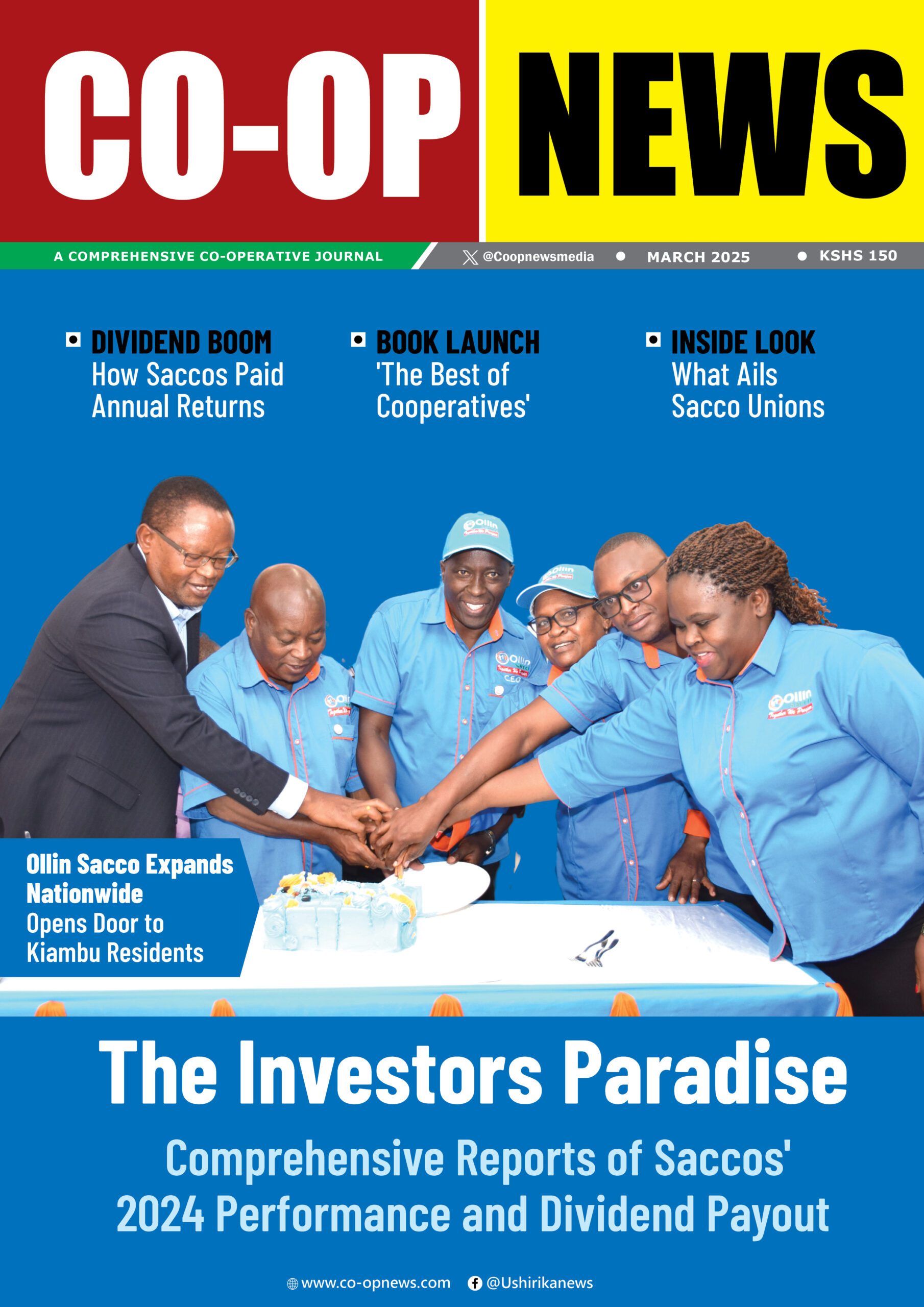John Mwaka left Sacco Societies Regulatory Authority (SASRA) Chief Executive Officer post, opening the stage to search for his replacement.
In the meantime, this powerful post is being held by Peter Njuguna, who has been a manager in charge of supervision at the regulatory body.
It is still unknown who will be confirmed as the next CEO at SASRA. Uncharacteristically, Mwaka has been silent on what has transpired at SASRA and his next move.
During his last days at SASRA, Mwaka was forthright, calling for strengthening governance within the Sacco sector to improve accountability and transparency.
With a shrinking budget and allocation from National Treasury, Mwaka pushed for an increase in the Sacco Levy despite stiff opposition from industry lobby groups such as the Co-operative Alliance of Kenya (CAK) and Kenya Union of Savings and Credit Cooperatives (KUSCCO).
Deposit-Taking Saccos that run FOSAs were from 2020 required to pay more levy SASRA.
This follows a ruling by Judge Weldon Korir that found that amendments to the Sacco Societies Deposit Levy order were done in consultation with all stakeholders, hence could not be quashed or faulted.
SASRA, through a notice signed by Mwaka, increased the SACCO levy from 0.1 per cent to 0.125 per cent. It will then increase to 0.175 per cent.
The new levy is paid based on deposits held in any Deposit-Taking Sacco Society that operates a FOSA, at the rate of 0.175 per cent of the Total Deposits as indicated in the last audited financial statements subject to a maximum of Ksh 10 million per annum.
According to The Sacco Societies Levy Order, 2016, signed by Mwaka, then still Chief Executive Officer of Sacco Societies Regulatory Authority.
Mwaka argued that the move by SASRA to increase the Sacco levy was informed by dwindling financial support from the Exchequer to funds its budget and operations.
Figures indicate that funding from the state to SASRA, a parastatal, has been declining recently.
Mwaka has been struggling with a shoestring budget to build SASRA’s capacity of the technical staff to benchmark with the rest of the world.
“Saccos are expanding so fast, and so is risk exposure to members’ deposits,” said Mwaka while pleading with stakeholders to approve increments in the Sacco levy.
Also on Mwaka’s scorecard is the number of DT-Saccos whose licenses were withdrawn after failing to meet stringent licensing requirements, including the giant Moi University Sacco and Nitunze Sacco in Mumias.
Some Saccos that have been on SASRA’s watchlist include Ainabkoi, Goodhope, and Kenya Midland, among others.
Mwaka’s departure is reminiscent of his predecessor Carilus Ademba, who left the regulatory body after the former Cabinet Secretary for Industry, Trade, and Co-operatives Adan Mohammed failed to renew his tenure.
This is even after the board reportedly recommended for a renewal of his tenure contract at the Authority.
Ademba had only served one term at SASRA before his tenure came to an end.
The SASRA board immediately embarked on the process of recruiting the next chief executive at the Authority.
Mwaka, who was then the manager in charge of policy, research, and development at the Authority, was appointed in acting capacity to replace Ademba, whose term came to an end in April 2015.
This is after serving the Authority for one term, having first been appointed by Joseph Nyagah, the then Minister for Co-operative Development and Marketing in the Kibaki administration.
Mwaka has over 20 years of institutional development experience and is an expert in co-operative development, planning, and change management.
He has been involved in institutional development, strategy formulation, planning, and analysis of both planned and existing organizations.
Mwaka is an accomplished professional in institutional design and rural finance development. He has advised and trained co-operatives to create profitable and sustainable financial institutions on a Pro-Bono basis.
Mwaka previously worked for the Ministry of Cooperative Development and Caltex Oil (K) Limited.
SASRA is a Semi-Autonomous Government Agency under the Ministry of Agriculture, Livestock, Fisheries and the state department for co-operatives.
The Authority was established under the SACCO Act 2008 and inaugurated in 2009 to license all DT Saccos. This mandate has since been expanded to include supervision on non-deposit-taking Saccos.
SASRA has been ensuring that Sacco members’ interests are protected, making sure there is confidence in a sector that has been hit by poor governance and theft of funds belonging to the public.
Acting CEO
Interestingly, Peter Njuguna-until now, Chief Manager-Sacco Supervision at SASRA, was expected to take over from Ademba given the profile and immense power enjoyed by his docket.
Njuguna has an MSc. in Operations Research from the London School of Economics, UK, and a BSc in Mathematics.
He has ten years of experience from the financial sector that he brings to SASRA, having worked with the CBK, NBC Kenya, CIC Insurance, and the World Council of Credit Unions.
Njuguna has been driving the process of licensing deposit-taking Saccos, monitoring and evaluating the performance, and conducting a review and improvement of policy, regulatory and supervisory frameworks.
His department has also been doing on-site and off-site surveillance and enforcement of compliance with the regulatory requirements, investigating and enforcing cases of violation against regulatory requirements in line with the Sacco Societies Act 2008 and regulations and analysis of data and information.







